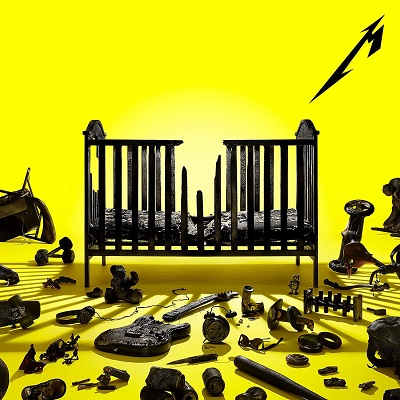Album Review: Metallica – 72 Seasons
2 min read
There are few bands who’s name is more synonymous with metal than Metallica. More than forty years in the game, and still remaining as relevant as ever, the band are legendary. 1991’s self-titled album saw the band reach mainstream heights that they have managed to maintain ever since, despite publicly-witnessed personal turmoil and few widely panned releases in the process. Seven years after their last release, the band have returned with 72 Seasons.
 Based on the number of seasons we experience during childhood that are the most impactful to our development, the title track kicks off affairs in perfect explanatory fashion. Frontman James Hetfield sings of looking back at life and reconciling that it is completely out of his control. Instrumentally, the song is Metallica through and through. Pounding drums, searing guitars, and Hetfield’s powerhouse vocals crooning over the top of the intricate riffs. As an introduction to the album, both in concept and sound, it reestablishes contact with fans, letting them know that the band are as good as ever.
Based on the number of seasons we experience during childhood that are the most impactful to our development, the title track kicks off affairs in perfect explanatory fashion. Frontman James Hetfield sings of looking back at life and reconciling that it is completely out of his control. Instrumentally, the song is Metallica through and through. Pounding drums, searing guitars, and Hetfield’s powerhouse vocals crooning over the top of the intricate riffs. As an introduction to the album, both in concept and sound, it reestablishes contact with fans, letting them know that the band are as good as ever.
Follow-up Shadows Follow begins with familiar sounding stabs, reminiscent of 80’s Metallica, launching into a minute-long riff before James Hetfield even begins his lines. It’s a comfort to hear that the band haven’t tried to make themselves more commercial, or stray too far from their sound. They’re an act confident in what they create. Sleepwalk My Life Away begins with a gritty bass line, building methodically until it explodes into the main riff, while Crown Of Barbed Wire adopts a slower tempo, but still hits hard. For the fans of solos, there’s plenty to choose from. Every song has a new Kirk Hammett lick, and it’s impressive to behold.
Eleven-minute behemoth Inamorata finishes the album on a high, flowing seamlessly from uptempo riffs to slow, quiet sections. It concludes an album that, while not digressing too far from the formula, manages to keep the listener engaged throughout. From start to finish Metallica deliver a brutal metal album, all killer and no filler. It’s hard to believe that a band of this longevity can produce an album like this, forty years after their first. Or, then again, maybe it isn’t.
Writer and Musician, Ryan Bulbeck has been published with a number of online publications, and has worked with a myriad of great artists, both as a performer, and as a producer. His most recent band The 295 are still active, playing shows around the UK.



